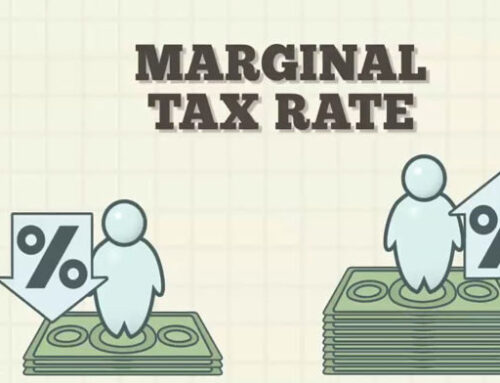Are you unsure if your Canadian Airbnb Host Taxes income is taxable?
If you’ve signed up as a host on a home-sharing platform like Airbnb Host Taxes, you might be wondering how to properly report and pay taxes on your earnings. It’s crucial to understand the nuances of home-sharing, as you’ll need to differentiate between business and personal use of your home and determine the number of days it was rented out.
This article aims to provide clarity on the taxability of your host income, guide you on how to make deductions for Airbnb-related expenses, and help you properly report your Canadian personal or corporate income taxes.
Tax Filing in Chatham >>
Understanding the Taxability of Your Airbnb Income in Canada:
It’s important to understand that regardless of whether you rent out a portion of your home for a few days or consistently throughout the year, your Airbnb income is taxable. Rental days refer to days when a guest pays fair market value to rent your home or a room.
Depending on various factors, short-term rental income can be classified as either rental income or business income. The way you report the amount on your Canadian tax return will differ depending on whether it’s rental or business income for Airbnb host taxes.
Fortunately, Airbnb keeps track of your earnings, and you can easily access your total rental income for the year by checking your Transaction History. To report rental income, you’ll need to use Form T776 Statement of Real Estate Rentals. If you’re unsure how to fill out the form, you can consult with a tax accountant, such as the experts at SRJ Chartered Professional Accountants. If the income is classified as business income, you can report it on Form T2125.
Renting All or Part of Your Home: How It Affects Your Tax Liability
Your tax liability may vary depending on whether you use your entire home or only a portion of it throughout the year.
If you don’t live in the home, you can deduct all of the expenses incurred on days when you rent it out at fair market value for Airbnb host taxes.
However, if you only rent out a portion of your home or use only a portion of it for personal purposes, you can only deduct expenses related to the rented-out portion and the days it was rented out.
To determine the percentage of rent and utilities that can be written off as an expense, it’s best to consult with a professional accountant.
Also Read: Upcoming Personal Tax Credits for 2024

Deducting Expenses and Charging HST/GST as an Airbnb Host Taxes in Canada:
If you’re an Airbnb host looking to deduct expenses, you can categorize them into direct and indirect expenses. Direct expenses, such as fees paid to Airbnb, advertising, and local licenses, can be deducted for Airbnb host taxes. Additionally, you can deduct home expenses for the portion of your home used for hosting. Indirect expenses, such as utilities, internet, and depreciation, can also be deducted. It’s essential to keep detailed records of any expenses incurred in case of a CRA audit.
Determining which rental expenses are direct or indirect and which ones are deductible can be a challenging task. At SRJ Chartered Professional Accountants, we have real estate tax experts who can assist you with Airbnb host taxes.
As an Airbnb host in Canada, if you earn more than $30k over four consecutive calendar quarters through short-term rentals (guests who stay for less than a month at a time), you’ll be required to collect and remit provincial sales taxes to the CRA. However, if you rent your property for a more extended period, the income earned is not subject to Canadian sales tax.
If you’re self-employed or a business owner and are already registered for GST/HST, it’s essential to note that you must charge sales tax on rentals, regardless of your income. Unfortunately, Airbnb’s website doesn’t currently allow Canadian hosts to add sales tax to their listings. Therefore, it’s recommended that the price includes the local sales tax, Airbnb Host Taxes, and a note is added to explain this to potential guests.
Also read: Top 5 Tips for Staying Ahead of Tax Season
Reporting Airbnb Income on Your Tax Return:
It is essential to report your Airbnb Host Taxes income and pay taxes on it. The form you use will depend on whether you provide additional services to your guests or not.
If you do not offer significant services, you will be considered a real estate rental business for tax purposes. However, if you provide services such as cleaning, housekeeping, and breakfast, it will be viewed as operating a service business. This implies:
- All your income will be taxable.
- You will be required to pay self-employment tax on that income.
Hiring a professional accountant to assist you in filing your Airbnb tax return is recommended for Airbnb host taxes. At SRJ Chartered Professional Accountants, we can assist you with this process.

In conclusion
Determining the amount of tax payable on your Airbnb income can be complex. Your personal rental income will be subject to taxation based on your marginal tax rate, but it does not include your provincial income tax. In certain cases, the taxes on your Airbnb income may go up to 53%. It is therefore highly recommended that you consult with a chartered professional accountant, such as the experts at SRJ Chartered Accountants, who can help you reduce your tax liability.
Recent Posts
FAQ
What is the amount of tax that must be paid on Airbnb income?
Your personal rental income is subject to taxation based on your marginal tax rate, excluding provincial income tax. Taxes can potentially reach up to 53% of your earnings, making it wise to seek advice from a professional accountant such as the experienced team at SRJ Chartered Accountants to minimize your tax liability.




